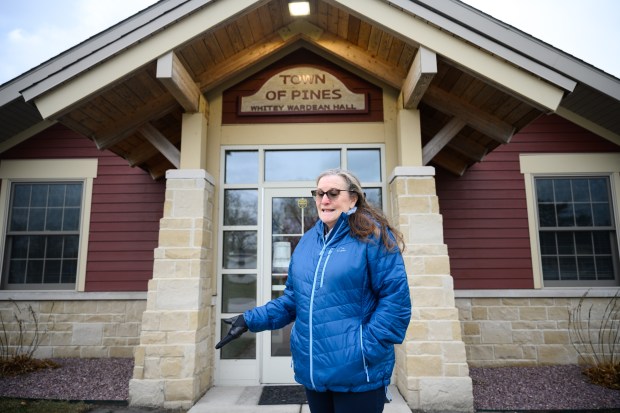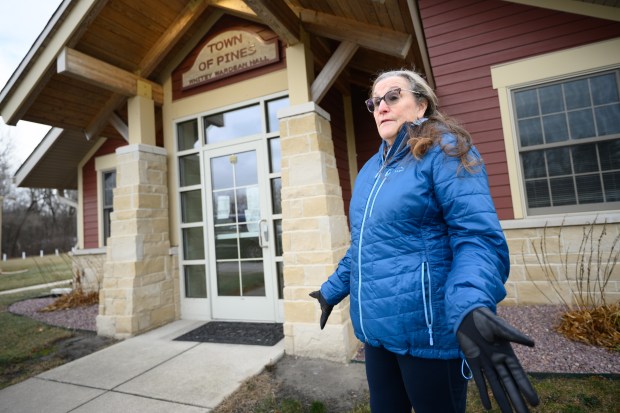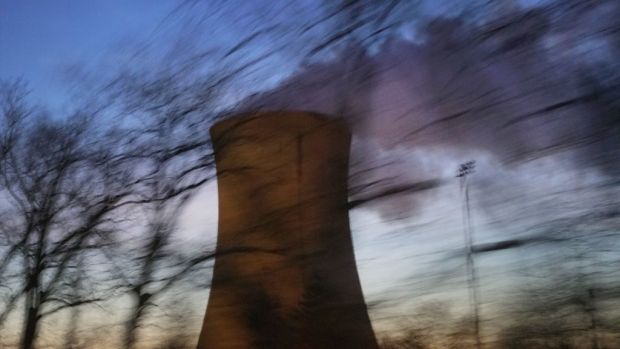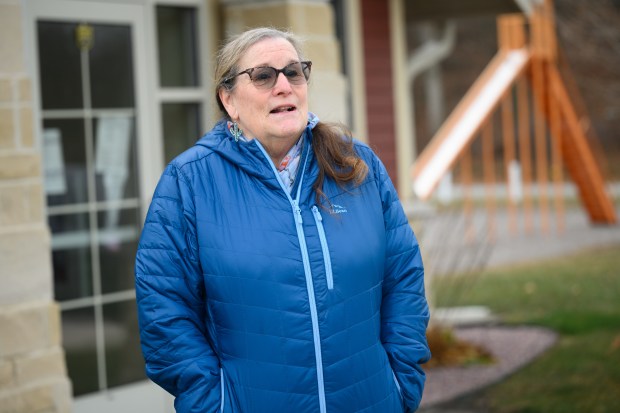For more than 20 years, residents in the Town of Pines have fought for cleanup measures from NIPSCO. Now, one group is applying for help from the Environmental Protection Agency.
“If we were successful in getting (NIPSCO) to clean their mess up, we wouldn’t still be here,” said Cathi Murray, a member of the People In Need of Environmental Safety community group.
PINES has applied for a $50,000 Technical Assistance Plan grant, which enables community groups to retain the services of an independent technical advisor to help interpret and understand technical site information, Danielle Kaufman, press officer for the EPA, said in an email.
The TAP can provide resources for community groups to help residents learn about site decisions. The EPA and NIPSCO encourage groups interested in the TAP to consolidate with the PINES group because only one grant is awarded in the Town of Pines Operable Unit 2.
If they are unable to form a coalition, groups must submit a letter of intent to NIPSCO by Dec. 30. All groups have 30 days to submit an official application.
“It’s sort of a double check,” Murray said. “It allows us to have an opportunity to make intelligent comments or have our technical advisor make comments on our behalf.”

Through a 2022 Consent Decree, NIPSCO is required to arrange for a community group to receive the TAP, and the utility will pick which grant receives the funding.
“NIPSCO is committed to following the direction of the U.S. EPA to ensure Town of Pines remediation work is conducted properly so that human health and the environment are protected,” Wendy Lussier, director of communications, said in an email statement.
The EPA and Indiana Department of Environmental Management oversee the cleanup process in the Town of Pines, Kaufman’s statement said.
“EPA’s overall goal is to protect human health and the environment,” she said.

PINES formed in about 2003, Murray said, after Town of Pines residents found heavy metals in their drinking wells. The group fought for better testing of drinking water because they believed the EPA wasn’t keeping them safe.
Paul Kysel, another member of PINES, said the group hadn’t been active in about 10 years but recently started again. Members were concerned with heavy metal levels in their soil, particularly arsenic.
The Town of Pines has about 700 residents, according to the town’s website. The town is located just outside Michigan City and near Lake Michigan.

A hyperboloid cooling tower at NIPSCO’s Michigan City Generating Station, a coal- and natural gas-fired power plant operated by Northern Indiana Public Service Company, which is owned by NiSource, on March 4, 2017. (Michael Zajakowski/Chicago Tribune)
The Town of Pines has been contaminated by coal ash from the nearby Yard 250 landfill. The landfill held more than one million tons of coal ash from NIPSCO’s Michigan City Generating Station. Coal ash is a byproduct that is created primarily from burning coal in power plants, according to the Environmental Protection Agency.
Town of Pines residents had worked with EarthJustice, a San Francisco-based nonprofit public interest environmental law organization, about coal ash and high arsenic levels. Kysel said one EarthJustice lawyer said the Town of Pines had the highest arsenic levels she had seen.
Soil samples the EPA had tested had been contaminated with arsenic, Kysel said, so it would affect the cleanup process.
Susan Thomas, legislative and policy director for Just Transition Northwest Indiana, has helped the town fight for coal ash cleanup, Murray said.
Coal ash was JTNWI’s original focus, Thomas said, and they worked with NIPSCO to clean its Michigan City site. That led the organization to work with the Town of Pines.
“I think they’re approaching their third decade of trying to get a cleanup,” Thomas said. “They are so frustrated, they are so sick and tired and scared. Who would ever want to be in that situation?”
JTWNI hasn’t helped with the TAP grant, Thomas said, but they support PINES “wholeheartedly” in their application.
“They need this,” Thomas said. “They need all the help they can get. They shouldn’t have to do this on their own.”
Thomas also condemned NIPSCO’s recent proposed rate hike and said that shouldn’t be up for consideration when affected communities are suffering.
NIPSCO has proposed a 22% electric rate increase that would cost the utility’s typical residential customers an additional $32 each month, according to the company, but the Citizens Action Coalition says the increase is more like $45, according to Post-Tribune archives.
Kysel and Murray both agree that the potential rate hike makes the situation worse.
“This is just adding insult to injury,” Kysel said. “On top of everything, they’re pursuing additional funds.”
mwilkins@chicagotribune.com





